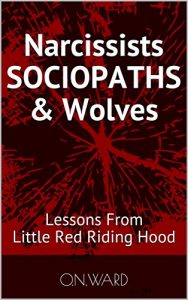Many of you know me from my book, Husband, Liar, Sociopath: How He Lied, Why I Fell For It & The Painful Lessons Learned. Through writing the book and including chapters on Lovefraud, I’ve tried to share the insights I paid such a high price to obtain. For almost twenty years, I was married to someone I now believe is a sociopath. My corrosive, confusing marriage, the toxic divorce, and the ongoing, financially and emotionally punitive post-divorce aftershocks redefined my life in ways I never imagined. I had to understand how my life got so derailed, how my confidence was decimated, and how my identity was almost destroyed. Through my book, I wanted to share what I’d learned in case it could be useful to others.
I’ve been heartened that many who’ve read the book have found it beneficial as they also search for answers and healing. Yet, I also wanted to try to reach people like “me” and “you” before our unwitting and destructive relationships with a sociopath. Why didn’t we know about such people? Why didn’t we know how prevalent they are? Why didn’t we know about the strategies and tactics they use and why they work so well? Was there something that made us especially good targets that had nothing to do with intelligence or education?
Using Little Red Riding Hood as a metaphor for a relationship with a sociopath, this new short book, Narcissists, SOCIOPATHS & Wolves: Lessons From Little Red Riding Hood, highlights the prevalence of sociopaths and why, just like in Little Red Riding Hood, even when we cross paths with a “wolf,” we and others around us (like the nearby woodcutters in the fairy tale) don’t see what is right in front of us—that the wolf is a wolf and that wolves are dangerous. In addition, the book includes some painful realizations that I only came to after writing Husband, Liar, Sociopath—that wolves have insatiable appetites—they are always in need of “fuel” and that I am like Little Red Riding Hood in many ways. I was trained by my family not to recognize the wolves in the world. I was trained to be vulnerable. Why? Because as I’ve continued to heal and understand, I’ve come to the conclusion that my father was a narcissist, and I had been trained to be willing narcissistic fuel.
When I’ve mentioned this realization to others close to our family, many validate my perceptions and note that it saddened them that it took me so long to understand this. My mother was empathetic and selfless, and sacrificed so much for her relationship with my father, and I was taught to do the same. Why did it take me decades to see this? Perhaps because the realization that a parent loves you, not for yourself, but only for what you can supply to him or her is brutally painful, and because the question, “What can I do and how can I change so someone I love will love me back?” gets woven into the very fabric of your being. You just don’t know how to be any other way.
I needed to understand this so that I would no longer be ruled by it. I wish I had understood the reality of “me” and my family dynamic decades ago. It might have made me aware of my own vulnerabilities to the wolves in the world who would profess to love me.
So that my own painful experience may prevent others from traveling the same road, the final chapter of the new book lists subtle warning signs that you might be in a relationship with a sociopath. I hope it will be a useful supplement to Donna’s very helpful, empirically-based list of Red Flags of Lovefraud. My list is based on my personal experience of the symptoms of being in a long-term relationship with a sociopath. From personal experience, the on-going warning signs can differ from the initial warning signs.
(Click on the picture of the cover for the link to the eBook on Amazon.)




becomingstrong
ON Ward,
Thank you for sharing your valuable insight and personal knowledge of sociopaths. I agree with you that the real work is in prevention. The wave of misinformation, propaganda, and ignorance regarding the true nature of a large segment of our population is fertile ground for future unsuspecting victims. I’ve also come to believe that the notion of free will is also not true. We are who we are. Whether it is genetics and/or nurture we are going to gravitate to those who feel familiar. It’s our nature. I’ve often read your passages to my sister who has said to me, ‘I didn’t sociopaths were so prevalent, but I wouldn’t have stayed for one simple reason, it wouldn’t have felt good and that would be enough for me to leave. I stayed because the pain and abuse felt familiar. I too was raised by psychopathic father. The sister of whom I reference was the golden child who represented the family legacy and future and I had no such role. Like you, I was like my mother trained to serve and give. It was my nature. I believe my nature and destiny were probably solidified by the age of 12. Who better to give to than someone that withdraws the giving which we deposit from the bank as soon as it is deposited and the account is always running in the red? Now there’s a true challenge for an empathic person. It’s a painful lesson indeed as well as the revelations about the why’s and wherefores that lead to these tragic unions. Again thank you.
Sunnygal
It sounds very good.
Cinna
I ordered this book on Kindle along with “Husband, Liar, Sociopath.” The checklist at the end of “Narcissists, Sociopaths & Wolves” is valuable and hard-won wisdom. Donna’s Love Fraud checklist first alerted me to the sociopaths in my life and the list from this new book from O. N. Ward is radically helpful. My mother was an extreme sociopath on the level with Paul from the “Husband, Liar, Sociopath” book and my older brother was bullied at school and brought it home. In leaving that home early, I see now was vulnerable to Love Bombing which got me caught up in a series of abusive relationships from which I was each time discarded. No mentors to help me organize my observations and experiences, no education at that time about aberrant behavior, no opportunity to take the needed time to reflect. Like Onna, I was kept busy with sociopath logistics and sociopath math. If even one person or resource had given me a list like Onna’s or Donna’s, I may have registered that the extreme behavior was dangerous to my identity and my life force.
When I accept that my abuse was extreme and long-term, my suicidal thoughts disappear and my thinking clears. Yes, it was that rough. When others trivialize or lecture me or nitpick at my history, the confusion and fog and despair return. When I read lists like the ONGOING signs list from “Narcissists, Sociopath and Wolves” I feel empowered that I was NOT WRONG to be disturbed by the extreme ONGOING behavior. Validation and information are key for me. There are still sociopaths around me in extended family, co-workers and occasional strangers. When I RECOGNIZE the SIGNS, I handle my interactions totally differently, as in self-protective and self-attentive. How do I FEEL around certain people and situations and then I act on that. I have to slow it down, take a breath, get a bit of a buffer and then I can take the precautions necessary to stay safe and free.
These checklists are clear, helpful and learned the hard way by people who NOTICED and worked at organizing the information. I was too stressed to notice the patterns at the time. I suspect many out there also cannot fathom the patterns either. So thank you for writing this book. Thank you for the excellent and clear checklist. Thank you Onna and Donna for putting your stories and wisdom out there to help us choose recovery and especially to reach those who can prevent derailment by simply knowing the signs. I totally recommend this new book to those of us who have ongoing confusion in relationships as we may be involved with disordered people.
Sunnygal
Regarding little red riding hood, the museum of modern art has little red riding hood Christmas tree ornaments with little red riding hood, grandma and the wolf.
Sunnygal
These were great.
Sunnygal
O.N. Ward Thanks for sharing your insight.
Sunnygal
The movie ‘In the Woods’ involves fairytales including Little Red Ridinghood.
Sunnygal
Great title.
Sunnygal
Wonderful article.